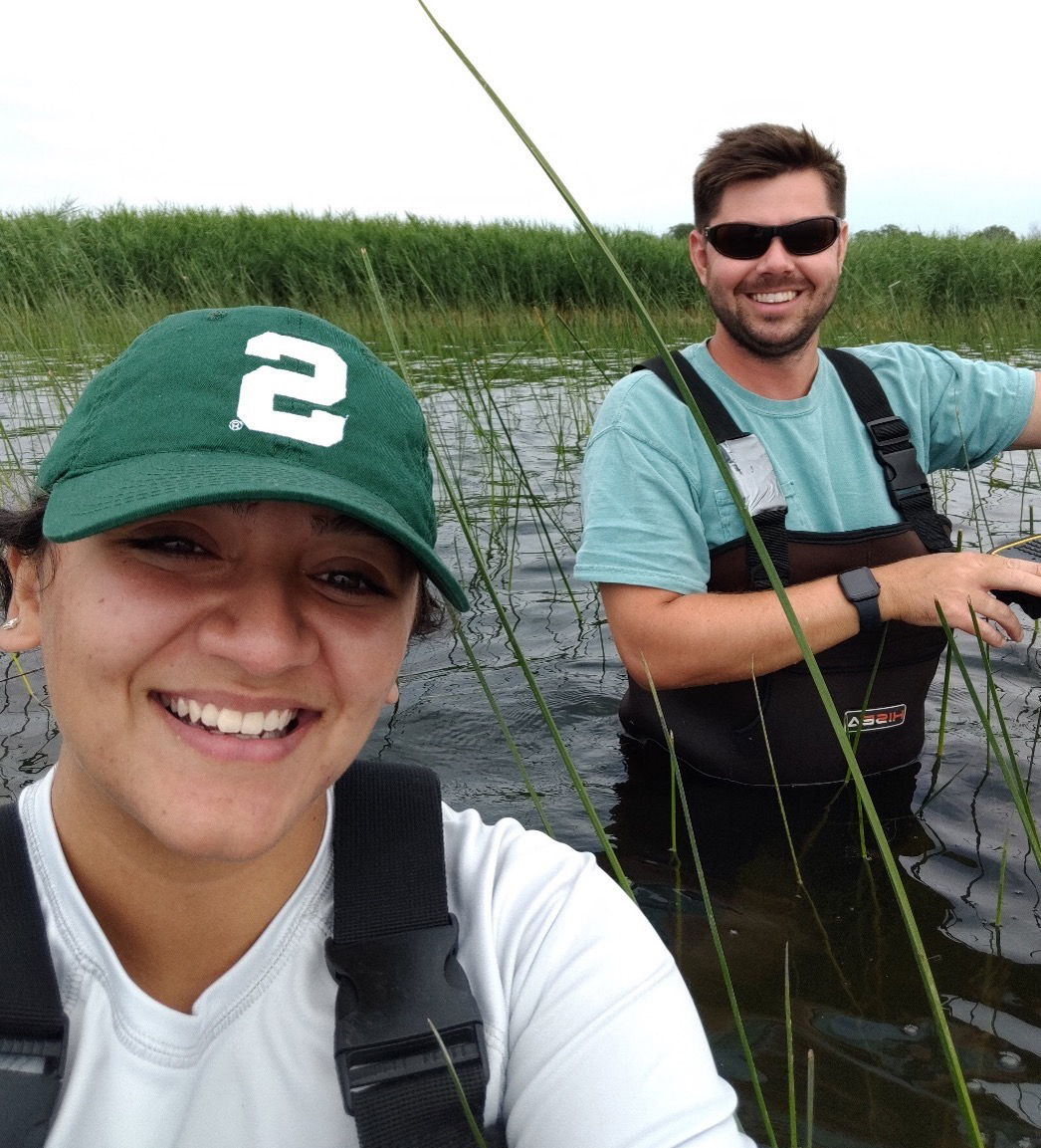Megan Castro is an Illinois native who grew up spending summers in Michigan. After earning her bachelor’s from the University of Illinois at Chicago in Earth and environmental sciences, she joined the MSUCoastal Processes and Geomorphology Lab and is pursuing her master’s degree in geography, environment and spatial sciences.
Castro’s research is associated with understanding wetland erosion and its relation to fluctuating lake levels. With coastal erosion becoming an increasing problem for human-made structures, the lab hopes to determine the resilience of natural coastlines to inform decisions about coastal management and mitigation efforts using sustainable and environmentally-conscious methods. Castro’s current work is devoted to constructing comprehensive maps of coastal wetlands in addition to collecting data on vegetation and sediment dynamics in order to contribute to the existing knowledge of wetland systems.

When studying the Great Lakes, we are all at the weather’s whim. We go out when it’s in a good mood, we give it space if it’s in a bad mood, and we drop everything and leave if its good mood turns bad. The morning of my first time leading a field excursion, the weather was undeniably happy; the sky was clear and open, the wind seemed to be taking some time off and the water was shining. We had managed to get on the road early and got the boat trailer hooked up without any trouble. The process of getting the boat into the water was seamless. Everything was going so well, yet I couldn’t shake my nerves. Every new minute was more time for something to go wrong, and I was almost too preoccupied to notice how beautiful my research site was.
Wigwam Bay was the antithesis of who I was in that moment: completely calm. All around us were shades of beautiful greens and blues; the only sounds were from the wetland’s wildlife. Smooth sailing in the most literal way possible.
We dropped anchor and swayed gently with the boat as I set up the equipment. I started to feel my nerves rise; this was going to set the framework for the rest of my summer research so everything needed to be documented, remembered and done correctly. The hours sailed by and we finished collecting our data faster than I had anticipated. As I began to shut everything down, I felt like I could breathe for a second. I thought, “I actually did it, I was in charge and we got everything we needed. No one was hurt, the site was great, nothing broke, today was perf-".
And then I watched as a custom piece of field equipment slipped from my hands into Lake Huron. My brain stopped working for a second. It processed what I saw too late; apparently, I didn’t feel it falling from my hands until it had already sunk and the “plop” it made reached my ears after the water’s surface had already settled. I reached for my phone to explain to my adviser how we had a great first day. It was almost perfect until it wasn’t.